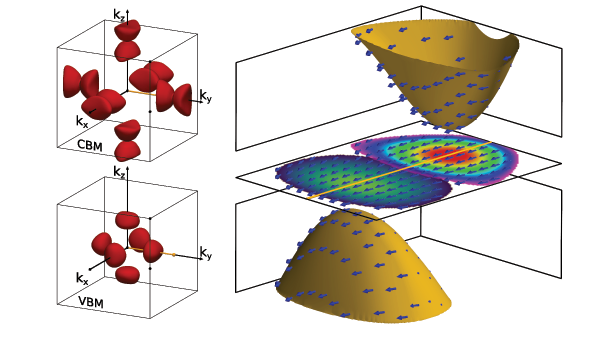Research of the Slawinska group unlocks universal rules for stable spin patterns in crystals
A team of scientists led by Jagoda Sławińska, in collaboration with researchers from the CNR-SPIN (Rome), has discovered a universal principle that could accelerate the development of next-generation electronic devices.

The study focuses on a quantum property called persistent spin texture (PST). PST allows the spins of electrons—the tiny magnetic moments that underlie much of modern technology—to remain stable and aligned, even as the electrons move through a material. This stability promises faster, more energy-efficient electronics based on spin, rather than charge, a field known as spintronics.
Until now, PST was thought to occur only in a few special materials. The new research shows that it is, in fact, a universal feature of a broad class of crystals: all nonmagnetic materials that lack a specific kind of symmetry known as inversion. By systematically analyzing crystal symmetries, the team demonstrated that PST is nearly always present, with only one trivial exception.
This discovery provides a powerful new guide for identifying materials that can host long-lived spin states—an essential ingredient for future technologies ranging from ultra-efficient computers to quantum devices.
Reference: Universal symmetry-protected persistent spin textures in noncentrosymmetric crystals, Berkay Kilic, Sergio Alvarruiz, Evgenii Barts, Bertjan van Dijk, Paolo Barone & Jagoda Sławińska, Nature Communications volume 16, Article number: 7999 (2025)
More news
-
15 September 2025
Successful visit to the UG by Rector of Institut Teknologi Bandung
